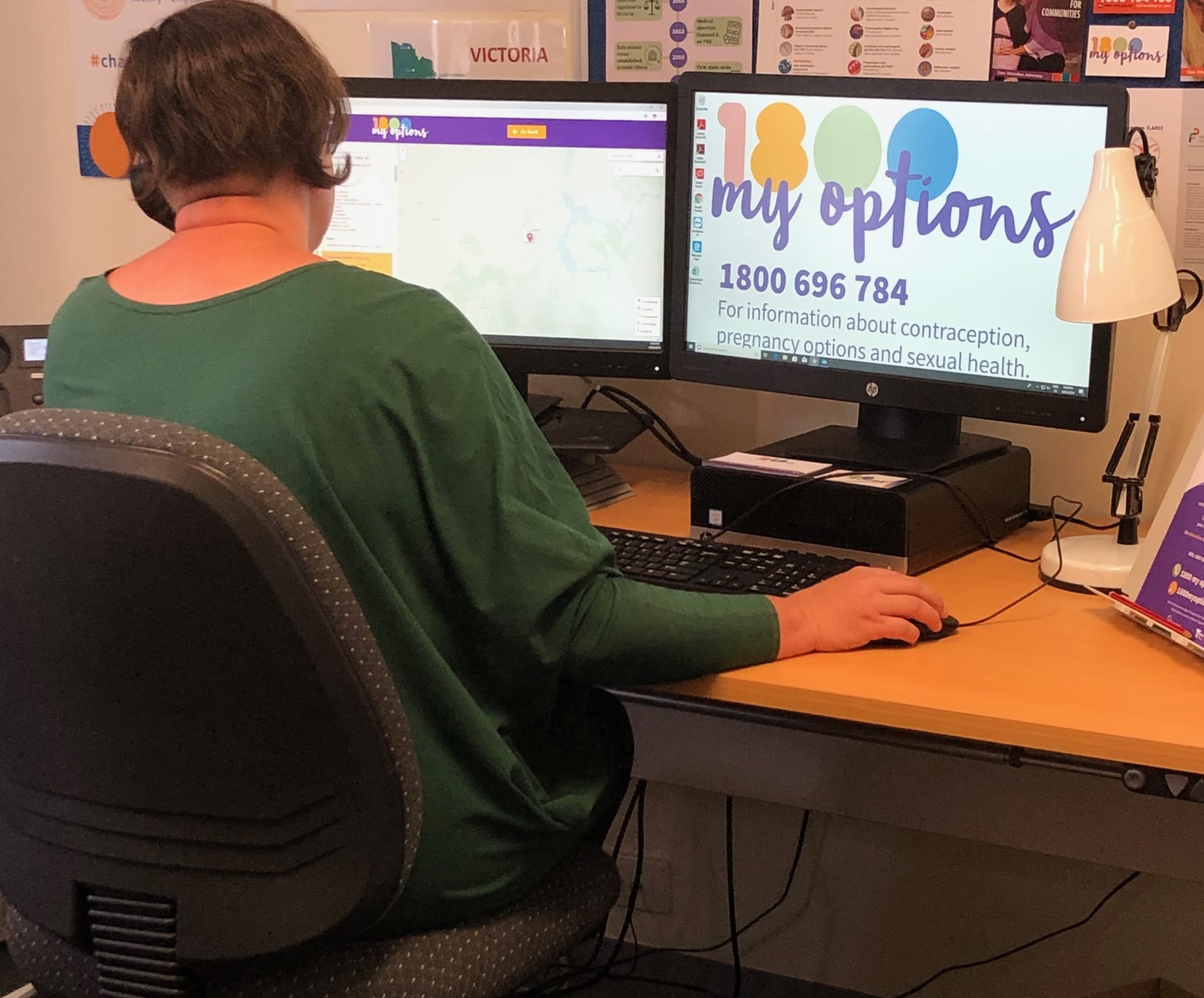
Read the Charter of Independence here.
Ongoing funding for Victoria's 1800 My Options hotline is especially valuable in rural areas, where women's use of the reproductive health service has risen in the past three years, according to the program's manager.
This year the State Government announced it will invest $2.7 million to support the 1800 My Options program for another five years. Set up in 2018, the phone and online sexual and reproductive health service offers free confidential advice to people seeking information on abortion, contraception, pregnancy, sexual health and relationships.
Manager of 1800 My Options Carolyn Mogharbel said the extra funding means the program can aim for better community outreach.
“It’s about finding who the voices are that are missing from the conversations that we’re having,” Ms Mogharbel said.
The funding boost came weeks after the Government marked International Women’s Day (March 8) with a commitment to provide Victorian women with “safe and affordable healthcare — regardless of where they live”.
Ms Mogharbel said the hotline was used by people across the state and predominantly accessed for information on abortion.
Features of the 1800 My Options website include the “hide your visit” and “quick escape” buttons, designed to discreetly clear search history or redirect the visit to neutral webpages to protect the privacy of those accessing the service.
According to the Royal Australian College of General Practitioners, women in rural and regional communities face numerous challenges in accessing timely and free medical and surgical abortions.
During a hearing in February, representatives from the National Rural Alliance appeared before the New South Wales Senate Community Affairs References Committee to testify about the lack of rural access to reproductive healthcare.
The representatives said rates of unintended pregnancy were higher in rural areas, many of which did not have access to early medical abortion.
“Surgical termination of pregnancy is generally provided in private clinics … located in major cities. Hence, access for rural women close to home is limited,” they said.
Of particular concern was research presented to the Committee that found less than 7 per cent of GPs nationwide were “registered to prescribe early medical abortion medications” in 2020.
The Victorian Government said its investments represent a culture of change that provides holistic, accessible, and diverse support to all Victorian women, including those in rural communities.
In addition to funding for 1800 My Options, the Government pledged to create 20 new women’s health clinics for “comprehensive care … on issues like endometriosis, pelvic pain and menopause” and nine additional sexual and reproductive health hubs “giving more women access to services and advice on contraception, pregnancy and sexual health”.
Addressing the backlash 1800 My Options faced over the Government investment, Ms Mogharbel said those who use the service for abortion were not unaware of, or unresponsive to, conversations about contraception.
Ms Mogharbel said there can be a compounding experience for those using the service to seek additional information about pregnancy termination.
“The way that we’ve always approached sexual and reproductive health is that it’s a whole-of-person response; [the services] are all interlinked and very closely interrelated,” she said.
“It absolutely makes sense that somebody should be able to access their STI testing and discuss contraception with the same person, as well as have the conversation about abortion.”
The regional health promotion coordinator for Women’s Health Goulburn North East, Melissa Rowland, knows the importance of community spirit for rural and regional women from her work on Storylines, a grassroots project that encourages women to share their intimate stories of sexual and reproductive health.

These stories are anonymous but allow public health workers to assess gaps in education, medical and wellbeing services for women in the Loddon Mallee, Murray and Goulburn regions of Victoria.
“We want all our priorities for advocacy and localised action to be community-informed. It’s about establishing a space for women and gender-diverse people to share their stores and have that go into our strategic action going forward,” Ms Rowland said.
She acknowledged that education is a big factor in terms of reproductive health for rural communities.
“The information that some people get at school is inconsistent. It relies on an individual teacher or school nurse just being passionate. [Sexual and reproductive health] is not as embedded into the curriculum," she said.
“There’s a massive crossover between sexuality, reproductive health and relationships. So, looking at how we can support schools to better implement a whole-of-school approach in health promotion is our aim.”
She said a new community advisory group of 20 women and gender-diverse people has been established to guide Storylines into a new era.
“In our meetings so far, we’ve learnt about what they see as priorities, and we really want them to define [Storylines] activities and what outputs they would like to see.”